-
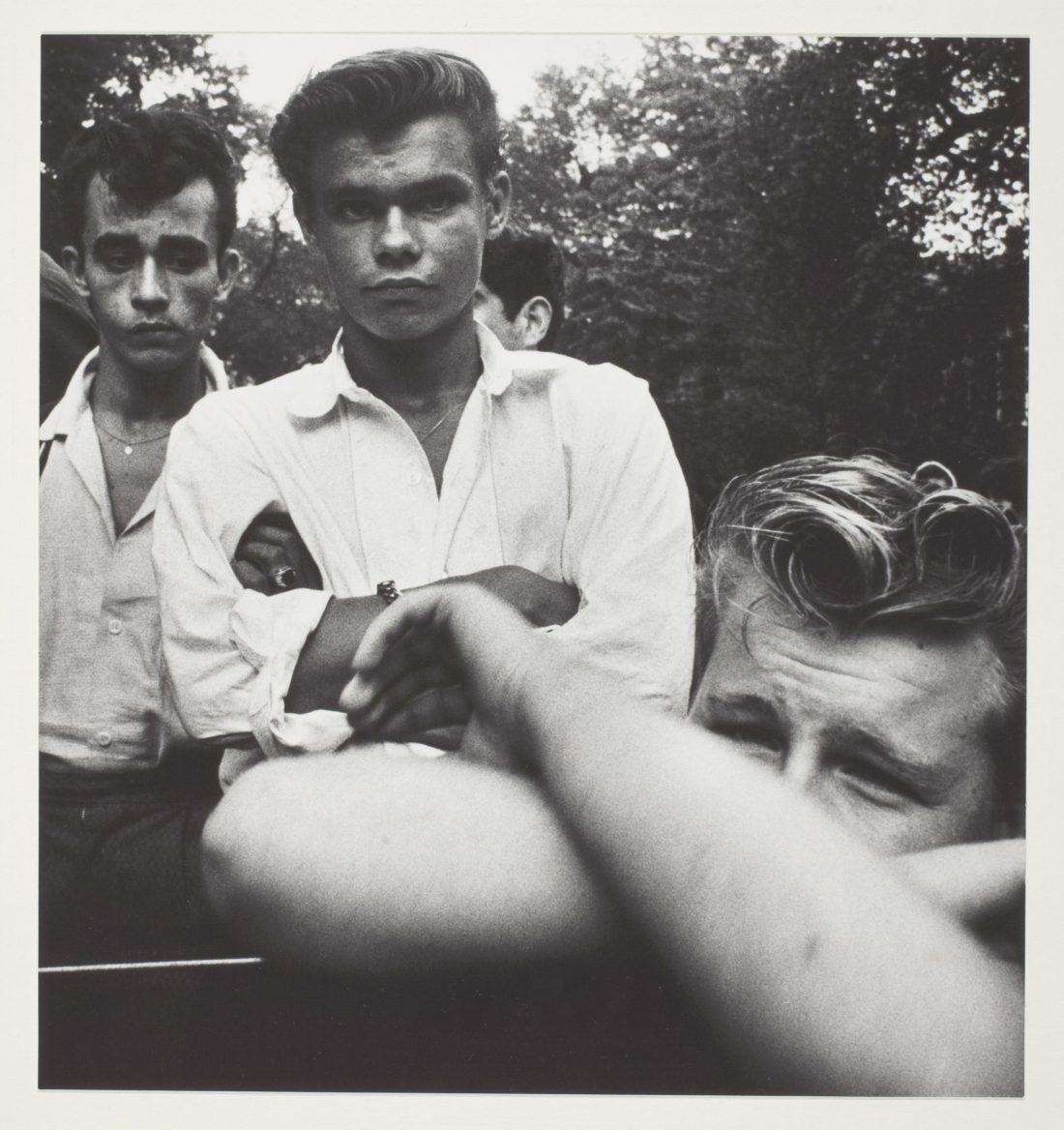 Joseph Sterling, Untitled, c. 1959. © Estate of Joseph Sterling
Joseph Sterling, Untitled, c. 1959. © Estate of Joseph Sterling -
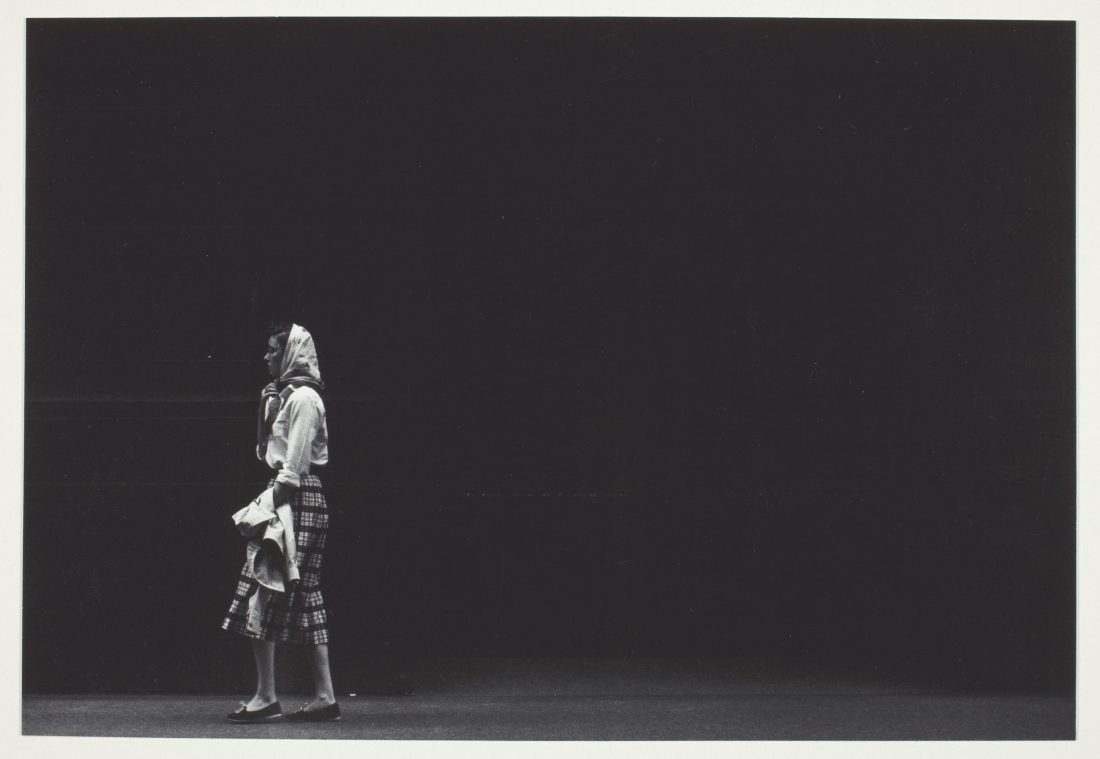 Ray K. Metzker, The Loop: Chicago, 1958. © Estate of Ray K. Metzker
Ray K. Metzker, The Loop: Chicago, 1958. © Estate of Ray K. Metzker -
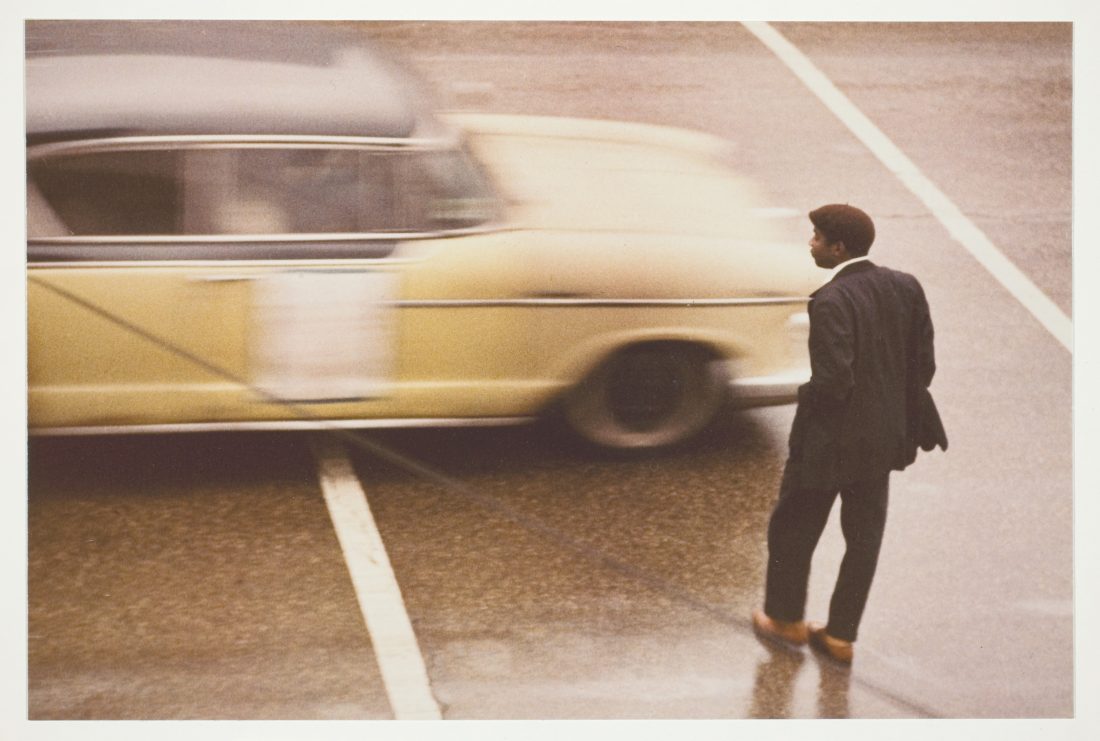 Robert Earl Wilson, Untitled, 1956/62. © Estate of Robert Earl Wilson
Robert Earl Wilson, Untitled, 1956/62. © Estate of Robert Earl Wilson -
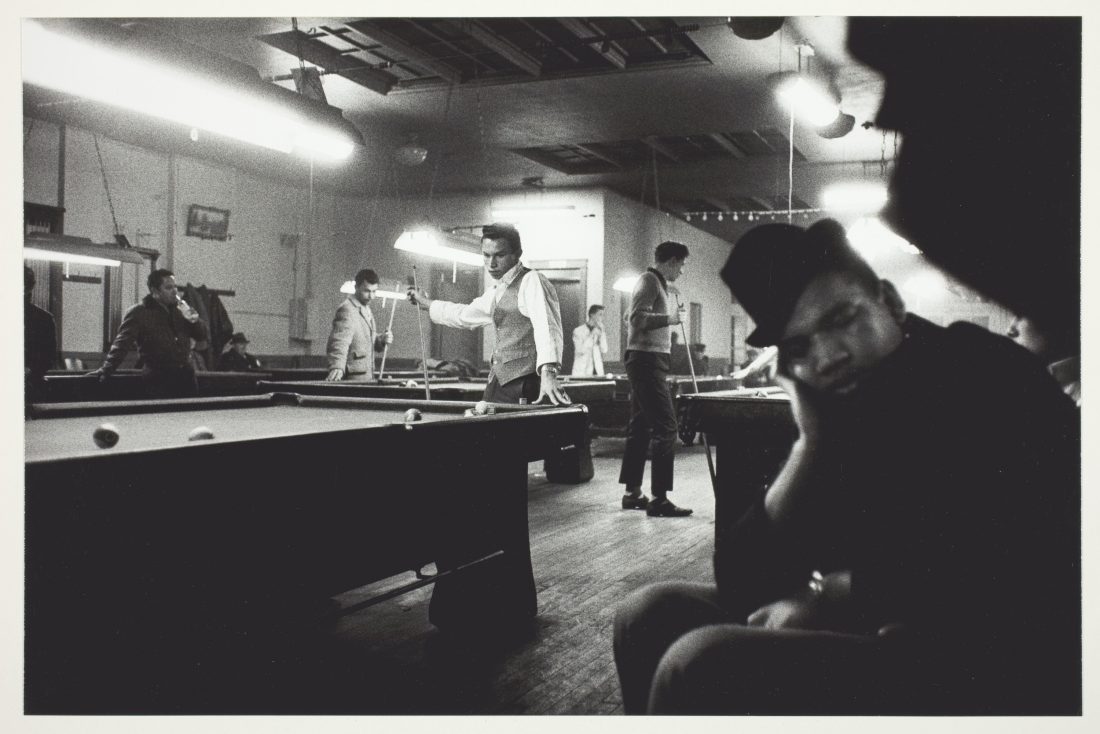 Enrico Sarsini, Untitled, 1963. © Enrico Sarsini
Enrico Sarsini, Untitled, 1963. © Enrico Sarsini -
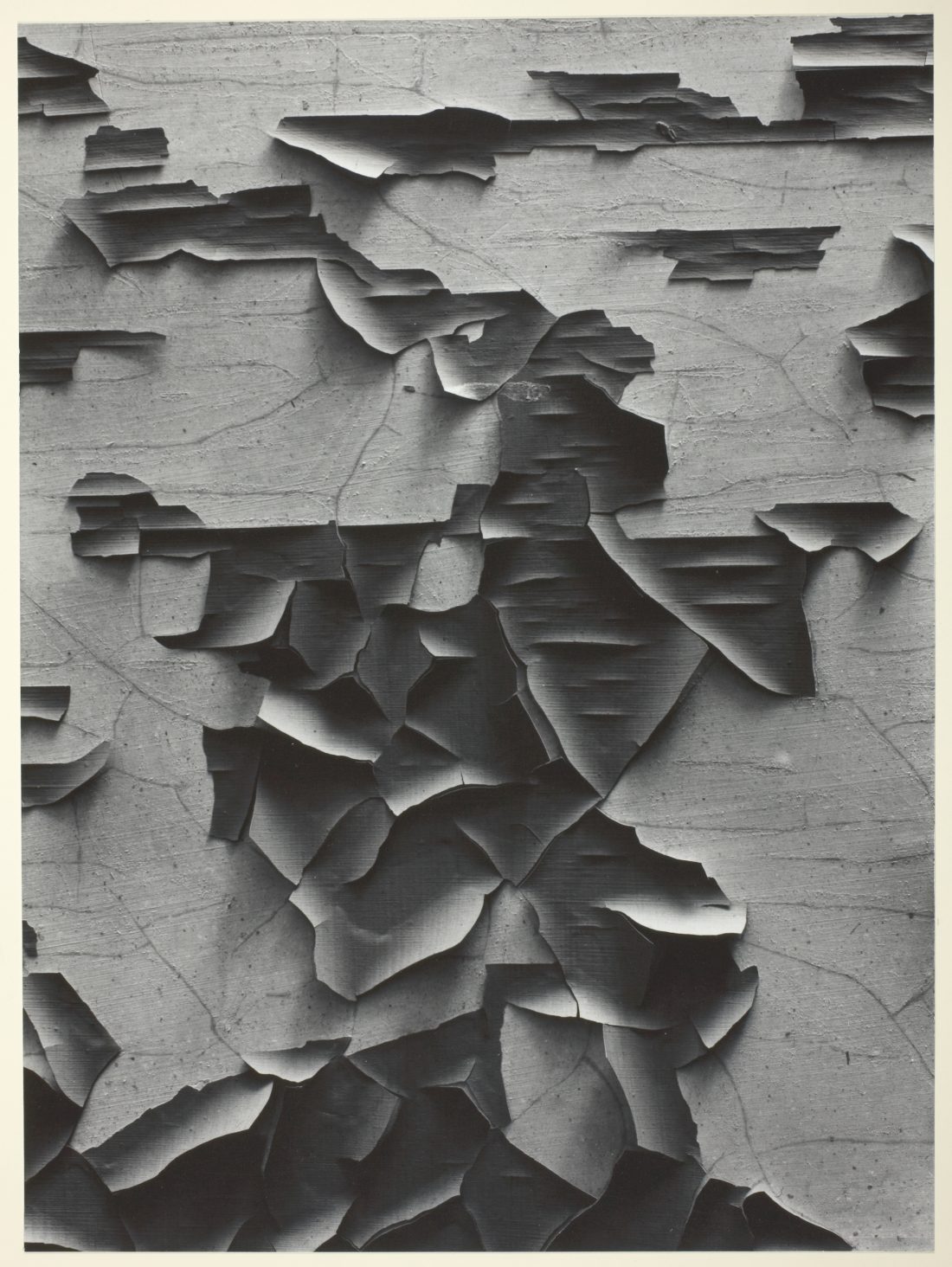 Aaron Siskind, Peeling Paint, Jerome, Arizona, 1949. © Estate of Aaron Siskind
Aaron Siskind, Peeling Paint, Jerome, Arizona, 1949. © Estate of Aaron Siskind -
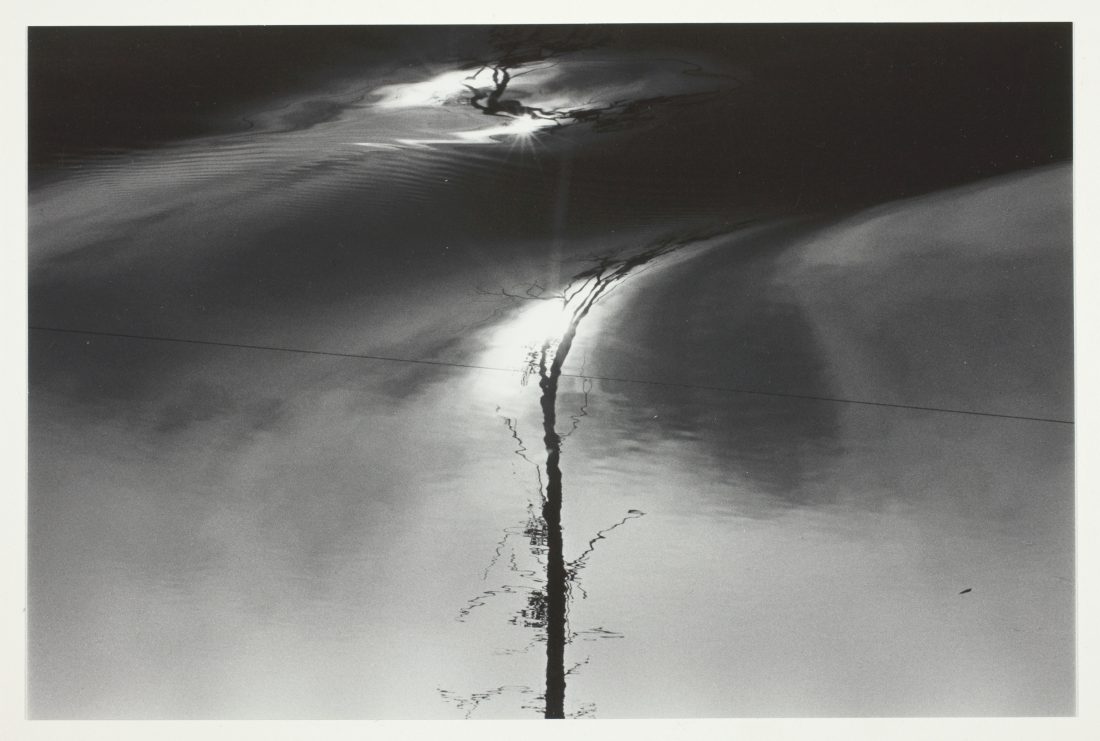 Joseph D. Jachna, Untitled, 1958/61. © Estate of Joseph Jachna
Joseph D. Jachna, Untitled, 1958/61. © Estate of Joseph Jachna -
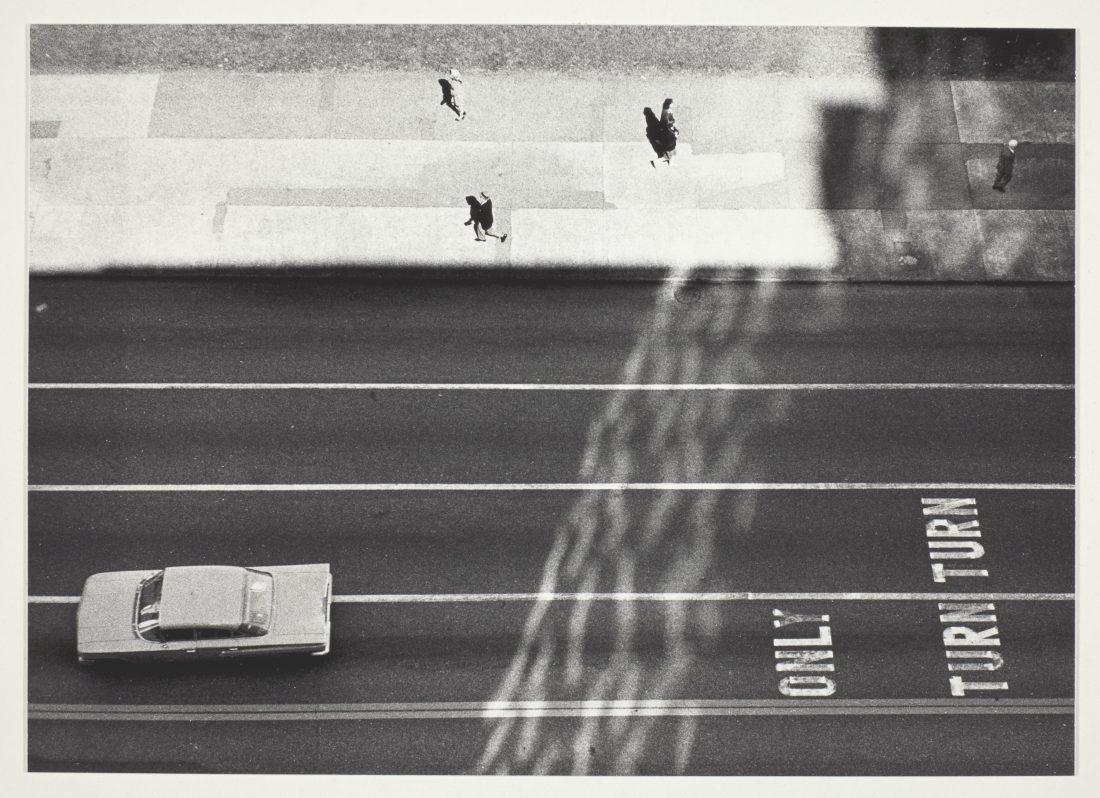 Yasuhiro Ishimoto, Untitled, 1948/60. © Kochi Prefecture, Yasuhiro Ishimoto Photo Center
Yasuhiro Ishimoto, Untitled, 1948/60. © Kochi Prefecture, Yasuhiro Ishimoto Photo Center -
 Kenneth Josephson, Chicago, 1959. © Kenneth Josephson
Kenneth Josephson, Chicago, 1959. © Kenneth Josephson -
 Harry Callahan, Eleanor and Barbara, Chicago, 1953. © Estate of Harry Callahan
Harry Callahan, Eleanor and Barbara, Chicago, 1953. © Estate of Harry Callahan -
 Art Sinsabaugh, Midwest Landscape #78, 1963. © Katherine Anne Sinsabaugh and Elizabeth Sinsabaugh de la Cova
Art Sinsabaugh, Midwest Landscape #78, 1963. © Katherine Anne Sinsabaugh and Elizabeth Sinsabaugh de la Cova
Chicago/Institute of Design
While his exhibition program spanned photographic history and showcased artists from across the United States and Europe, Hugh Edwards paid particular attention to contemporary photographers in Chicago. More than one third of the shows he mounted were of artists based in Chicago or otherwise tied to the city; in many cases this was the first time their work had been displayed in a museum. Such exhibitions and attendant acquisitions helped cement Chicago’s reputation as one of the leading centers for the making of photographs as well as their display.
Always broad-minded, Edwards appreciated both black-and-white and color images, Chicago cityscapes and rural Midwest scenes, abstractions as well as documentary photography. He presented emerging artists like Jonas Dovydenas, Rudolph Janu, Algimantas Kezys, and Enrico Sarsini; showcased some of the city’s most well-known practitioners, like Arthur Siegel and Aaron Siskind; and helped launched the career of photographer and filmmaker Danny Lyon, mounting two exhibitions of his work while offering early advice and encouragement.
One group from Chicago did receive special attention. Under the direction of photographer and polymath artist László Moholy-Nagy, the Institute of Design (ID) had begun in Chicago in 1937 as the New Bauhaus, a school of applied and fine arts formed to advance the city’s design profession. Moholy emphasized the study of light in his teaching, particularly through photography, and by the mid-1940s the school had embarked on an innovative, specialized photography program. Later teachers included Harry Callahan, Siegel, Siskind, and Frederick Sommer, and many of their students in turn became practicing photographers and university instructors.
Whereas previous Art Institute curators had displayed and collected the work of several ID teachers, Edwards focused on the students. Charles Swedlund recalls that presenting one’s thesis project to Edwards for outside review became common practice: “It was just part of that tradition to take your graduate thesis and show it to Hugh.”[1] Indeed, Edwards’s first monographic exhibition showcased the recent thesis of Ray Metzker, whose photographs of Chicago’s Loop were a study in light, shadow, and form. Minor White, writing in a special issue of Aperture dedicated to the work of five students from the ID, noted this unusual approach: “Yearly a few arrive at the threshold of camera work. But only in Chicago does the city art museum celebrate ‘arrival’ with a public exhibition.”[2] Edwards later exhibited the work of recent ID graduates Yasuhiro Ishimoto, Joseph Jachna, Thomas Knudtson, George Nan, Joseph Sterling, Art Sinsabaugh, and Keith Smith, and acquired photographs from Kenneth Josephson’s graduate thesis. By giving local artists—and especially emerging ones—prominence at the Art Institute, Edwards helped link Chicago to a broader dialogue about contemporary photographic practice in America and beyond.
Elizabeth Siegel, Curator of Photography
[1] Charles Swedlund, interview with Elizabeth Siegel, Apr. 19, 2017. See Media section of this website for audio.
[2] Minor White, “Editorial,” in “Five Photography Students from the Institute of Design, Illinois Institute of Technology,” special issue, Aperture 9, 2 (1961), p. 46.
Citation: Elizabeth Siegel, “Chicago/Institute of Design,” in Hugh Edwards at the Art Institute of Chicago, 1959–1970 (Art Institute of Chicago, 2017), http://media.artic.edu/edwards/.
Selected Exhibitions
My Camera and I in the Loop: Photographs by Ray Metzker (1959)
Photographs by Yasuhiro Ishimoto (1960)
Photographs by Rodney Galarneau, Thomas Knudtson, David Rowinski, Joseph Sterling (1961)
Photographs by Joseph D. Jachna (1961)
Photographs by Rudolph Janu (1962)
Midwest Landscapes: Photographs by Art Sinsabaugh (1963)
Selected Writings
Lyon, Danny, “Photographic Memory,” DoubleTake 2, 3 (Summer 1996), pp. 74–75.
Related Media